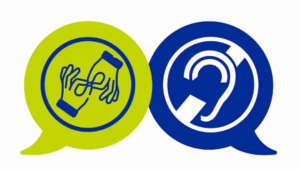Throughout our blogs and blog series, we’ve talked a lot about being a language conduit and a clarifier. A culture broker, or cultural broker, is the next on Niska’s pyramid. It’s one of the roles of the interpreter that’s used far less often than being a language conduit. As with the role of the clarifier, it’s another “breakout role.” The goal is to step out of your role as conduit and back into that role as soon as possible.

It’s also similar to the role of Clarifier in that it’s another way in which live interpreting outperforms machine interpreting. Put simply, your knowledge of your own culture is one of the greatest tools an interpreter has. You understand the cultural context behind what the non-English speaker is saying. You also understand the cultural context behind what the provider or English speaker is saying. You’re the person in the room with the knowledge of both of these cultures. Therefore, you’re the person in the best position to make a bridge between them and better understanding. In this installment of our Interpreting Skills blog series, we’ll talk about how your cultural knowledge applies to your interpreting.
Let’s Talk About the Broker’s Culture
An excellent source that explores the relationships between interpreting, language, and culture is the 2013 work “Interpreter: a cultural broker?” This piece is by Kristina Gustafsson, Eva Norström and Ingrid Fioreto. It’s found in the text, Interpreting in a changing landscape: Selected papers from Critical Link. Christina Schäffner, Krzysztof Kredens, and Yvonne Fowler compiled the full text. They give the following analysis:
Cultural sciences use a number of different definitions of culture. We apply the definition of culture used to capture those parts of human interaction that are collective and which concern everyday life, the creation of meaning, values, customs and habits. It covers all aspects of life, from politics and legislation to emotional life and morals. Culture in this sense is constantly produced in the interaction between people and should not be linked to ethnicity or nationality, as is often done in a stereotyping manner. Culture is just as much an expression of gender, class, religion, age, education, profession, and geographical location as it is of nationality or ethnicity.
Cultural processes occur anywhere where people interact; in corporations, organizations, school classes etc. This of course also includes interpreted encounters. Representation through language is therefore central to the process by which meaning is produced. In other words, meaning differs in various contexts, different times, places and situations; and this is expressed through language. Thus, language is never culturally neutral.
Culture is expressed in many different ways. Perhaps the most prominent way in everyday existence is through linguistic acts; spoken language, body language and other forms of expression such as silence, laughter, emotions etc. Translation from one language to another lays cultural conceptions bare. The thoughts, ideas and feelings are one of the things that the language represents within a culture.
So, what is culture then?
The above is verbatim from the authors. Perhaps a bit long, but very useful. Let’s give a quick recap:
CULTURE IS:
- A way to define the individual characteristics of a certain group
- Ever-changing
- How we define our morals, politics, and legislation
- The overarching way in which we find meaning in everyday life, values, customs, and habits
- Often stereotyped
- An expression of gender, class, religion, age, education, profession, and geographical location
- AS WELL AS ethnicity and nationality
Culture gives us an idea of life and defines how we assign meaning to concepts both abstract and concrete. We express this meaning through words, language. Thus, language and culture are intrinsically tied.
As an interpreter, you’re using two languages during each session. Each language comes with its own cultural understanding of how words are used. You’re not just interpreting words from one language to another, you’re translating the cultural context as well. You’re making the ideas and ways of speaking in one language understandable in another. This is an invaluable skill.
When to Act as a Cultural Broker:
Now that we have a better understanding of how culture and language connect, let’s talk practicalities. When do you act as a cultural broker during an interpreting session? Essentially, it’s the same as acting as a clarifier–you’re really just making a cultural clarification. However, it’s a little more subtle; a little more nuanced. In your role as clarifier, you’re looking for an obvious body-language indication that one party is lacking understanding. In cultural clarification, this isn’t always the case. There might not be an obvious lapse in communication. It might come down to having a feeling that one party didn’t understand the double meaning, or full meaning. As you grow more advanced in your career as an interpreter, you’ll find that your instincts sharpen. You’ll learn when it’s appropriate to intervene. If in doubt, step out of your role as language conduit and ask.
How to Act as a Cultural Broker:
So, you’ve noticed a lack of comprehension for one of the parties for whom you’re interpreting. How should you act as a culture broker? Acting as a cultural broker is, as mentioned, similar to acting as a cultural clarifier. Here’s an easy procedure to follow to be sure that your intervention is properly executed:
- Take a step back from your role as language conduit and step into your role as cultural clarifier. Say in English, “The interpreter would like to make a cultural clarification.” Then repeat this in your target language so that both parties know what’s going on.
- Make your cultural clarification: for example, explain the idiom or colloquial phrase one party used.
- Interpret exactly what you just said into the other language you’re using in the session. This is to make sure both parties are on the same page. Also interpret any follow up questions.
- Say “The interpreter is finished making the cultural clarification. Please feel free to continue the session.” Say this in both languages. Then, take the metaphorical step back into your role as language conduit.
Global Arena’s Interpreter Training Program
Looking for a place to discuss interpreting topics with peers while building a foundation for your career? Global Arena’s interpreting program covers the four main types of interpreting assignments: medical, school, business, and legal. Our goal is to create a base for new interpreters just starting in the industry. Experienced interpreters also benefit from brushing up on their skills and industry knowledge. The course is discussion and activity-based to keep it dynamic and engaging. The training takes place over zoom. Participants receive a welcome packet with reference materials, including activity pages and glossaries. You will also receive a certificate of completion upon passing exam score: useful for interpreting applications and resume-building. Sign up or learn more about the Interpreter Training Program.




